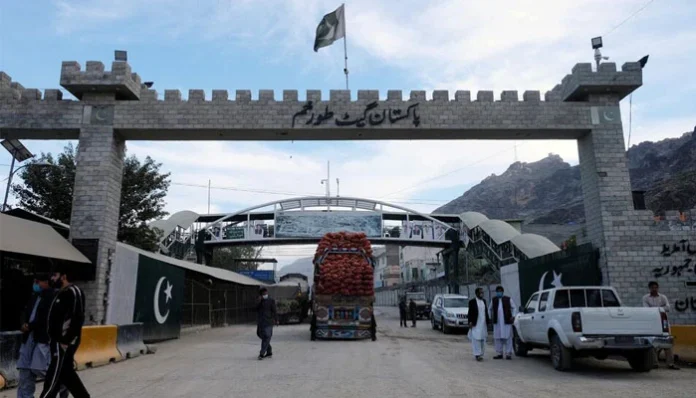Islamabad, June 27: With ‘iron brother’ China tightening the screws with regard to security for Chinese personnel and projects, Pakistan has decided to stringently enforce international laws at its borders with Afghanistan, in an attempt to restrict the influx of militants and smuggled goods.
Defence Minister Khawaja Asif said on Thursday that Pakistan is seeking not only to curb economic losses caused by the smuggling of oil, fertilisers, and other goods from Afghanistan into Pakistan, but to also stop the infiltration of terrorists, and implement security checks at the borders.
“All traffic from Afghanistan will only be allowed entry into Pakistan with a valid passport and visa,” Asif told Geo News, hinting at the end of the longstanding practice of Afghans entering Pakistan without proper documentation.
Dar’s comments come as Federal Minister for Interior Mohsin Naqvi met with his Chinese counterpart, Qi Yanjun, in New York, with talks that were focused on security matters, including the investigation into the Dasu terror attack in March which six Chinese engineers were killed.
Minister Naqvi briefed his Chinese counterpart on the progress made in the investigation into the Dasu terror attack and assured that “foolproof arrangements” have been made for the security of Chinese citizens in Pakistan.
The Chinese Minister also assured “full cooperation” to Pakistan for the training of the Special Protection Unit (SPU) and other security related matters during the meeting.
The meeting between the two ministers comes days after Islamabad approved Operation Azm-e-Istehkam amid an increase in terror incidents.
Dar’s remarks on Afghanistan come as Pakistan has witnessed a significant surge in cross-border attacks on security forces in recent months with the militants using advanced weaponry and equipment.
Islamabad has time again called on the Taliban government in Afghanistan to prevent its land from being used by the Tehreek-e-Taliban Pakistan (TTP) and other militant organisations for carrying out attacks against Pakistan.
“We must secure our country, and these crossing points have been compromising our security,” Asif said.
He pointed out that after the withdrawal of US troops from Afghanistan, there had been a spike in terrorism, with most incidents tracing back to Afghan soil. “Currently, all terrorism is emanating from Afghan territory.”
Asif said that formal borders, where passports were required for crossing, were a standard global practice, and added that despite Pakistan’s repeated requests for cooperation, Kabul was yet to respond adequately.
Afghanistan does not recognise the Durand Line, the border between the two countries, arguing it was created by the British to divide ethnic Pashtuns.
The 2,640-kilometre border was established in 1893 through an agreement between British-ruled India and Abdur Rahman Khan, then ruler of Afghanistan.
Both countries share 18 crossing points, with Torkham and Chaman being the most frequently used for trade and movement of people. These crossings connect Balochistan province to Afghanistan’s southern Kandahar province.
In 2017, Pakistan started fencing the border with Afghanistan to contain terrorist cross-border movement, a move condemned by Kabul.








